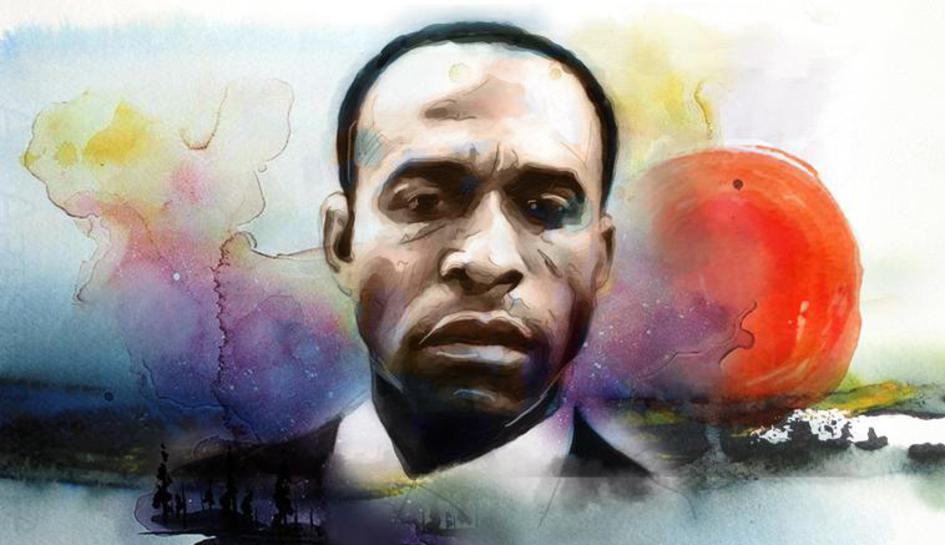
But I was satisfied with an intellectual understanding of these differences. In the Antilles there was also that little gulf that exists among the almost-white, the mulatto, and the nigger. Together we protested, we asserted the equality of all men in the world. Of course I have talked about the black problem with friends, or, more rarely, with American Negroes. The black man among his own in the twentieth century does not know at what moment his inferiority comes into being through the other. His metaphysics, or, less pretentiously, his customs and the sources on which they were based, were wiped out because they were in conflict with a civilization that he did not know and that imposed itself on him. Overnight the Negro has been given two frames of reference within which he has had to place himself. The black man has no ontological resistance in the eyes of the white man. Some critic will take it on themselves to remind us that this proposition has a converse. For not only must the black man be black he must be black in relation to the white man. Ontology-once it is finally admitted as leaving existence by the wayside-does not permit us to understand the being of the black man. Someone may object that this is the case with every individual, but such an objection merely conceals a basic problem.

In the Weltanschauung of a colonized people there is an impurity, a flaw that outlaws any ontological explanation. It would seem that this fact has not been given sufficient attention by those who have discussed the question. There is of course the moment of “being for others,” of which Hegel speaks, but every ontology is made unattainable in a colonized and civilized society. Now the fragment have been put together again by another self.Īs long as the black man is among his own, he will have no occasion, except in minor internal conflicts, to experience his being through others. I was indignant I demanded an explanation. But just as I reached the other side, I stumbled, and the movements, the attitudes, the glances of the other fixed me there, in the sense in which a chemical solution is fixed by a dye.

Their attention was a liberation, running over my body suddenly abraded into nonbeing, endowing me once more with an agility that I had thought lost, and by taking me out of the world, restoring me to it. Sealed into that crushing objecthood, I turned beseechingly to others. I came into the world imbued with the will to find a meaning in things, my spirit filled with the desire to attain to the source of the world, and then I found that I was an object in the midst of other objects. “Dirty nigger!” Or simply, “Look, a Negro!” “The Fact of Blackness” is Fanon’s celebrated essay describing the consciousness of “black” subject in a world of “white” power. Born in Martinique, Fanon studied medicine in Paris and became a psychiatrist in Algeria during its wars of liberation from France. The party must be decentralized to the limit.Frantz Fanon was perhaps the seminal theoretician of postcolonial politics, culture, and identity his two major books, Black Skin, White Masks (1952) and The Wretched of the Earth (1961), have been widely read and have provided an important inspiration for liberation movements around the world.

No administrative pretext can justify the bustle of the capital already overpopulated and overdeveloped compared with nine tenths of the territory. Centralizing everything in the capital should he avoided. With the exception of a few, they should reside in the rural areas.

In an underdeveloped country the leading party members should flee the capital like the plague. Alas all too often it is the party which makes up the entire political bureau and its members reside permanently in the capital.
FRANZ FANON EXCERPTS FREE
The party is not and never should be merely a political bureau where all the members of government and dignitaries of the regime feel free to congregate. It is the party which decides on the policy enacted by the government. Very much to the contrary, the party is an instrument in the hands of the people. The party is not an instrument in the hands of the government. A country which really wants to answer to history, which wants to develop its towns and the minds of its inhabitants, must possess a genuine party.


 0 kommentar(er)
0 kommentar(er)
